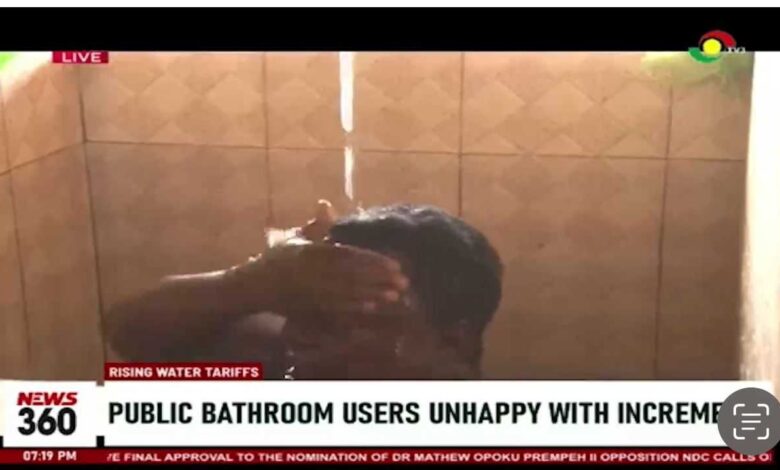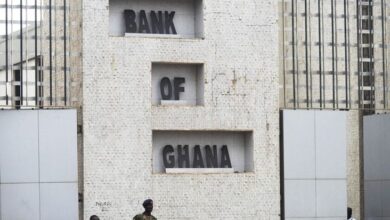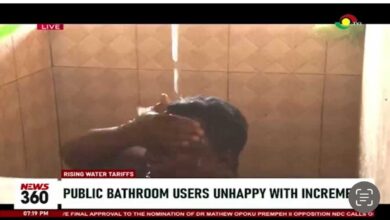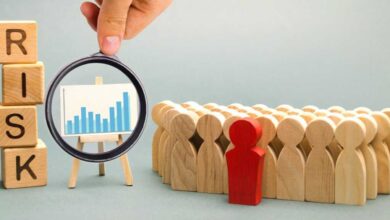Users of public bathrooms at Nkrumah ‘Circle’ lament increase in water tarrif

The Kwame Nkrumah Circle in Accra is a hive of activity. Amid the crowded streets and busy markets, a less visible part of daily life occurs.
Many residents here rely on public bathrooms for their hygiene needs, paying a modest fee of GHC2 for each visit. However, with the recent announcement of increased water tariffs by the Public Utilities Regulatory Commission, this modest fee may soon rise, posing a significant challenge for these residents.
Afia Asantewaa, a mother of three, is one such resident. Living in a small, shared apartment with no private bathroom, Afia depends on the public bathrooms at the Circle.

“It’s expensive. We used to pay GHC1.50, and now it’s GHC2, sometimes even GHC3. I sometimes have to beg. It’s a big problem,” said Afia.

The Commission’s decision to raise water tariffs by 5.16% from July 1, 2024, is part of a broader effort to maintain the financial viability of utility services. However, this increase, while necessary for sustaining these services, has immediate and tangible effects on people like Afia.

For public bathroom operators like Usif Asare, the tariff hike means higher operational costs.
“I will also make sure to increase the fee. If they don’t pay, I’ll shut off the water. It will affect my business, but I can’t provide free services,” he said.

This potential increase is a source of worry for many residents. Mark Acheampong, a bus conductor who also relies on the public bathrooms, voices his concerns.
“We already struggle to make ends meet. An increase in the cost of using the bathroom might seem small to some, but for us, it adds up.”

The increased tariffs are part of a broader review that includes a 3.45% hike for lifeline electricity consumers and higher increases for other categories. The goal is to ensure that utility providers can continue to deliver their services effectively. But for residents and traders of the Kwame Nkrumah Circle, this comes with a personal cost.

“I understand why they need to increase the tariffs,” Afia admits. “But I hope there will be some support for people like us who are already struggling. Access to clean water and sanitation is a basic need, and we shouldn’t have to choose between that and other essentials.”
As the new tariffs come into effect, the residents and traders of Kwame Nkrumah Circle are bracing for the impact. It is a call to action for policymakers to consider measures that will cushion these residents against the brunt of the increases, ensuring that access to basic hygiene remains within reach for all.







